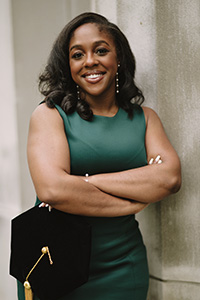 From an early age, I have had mixed feelings about law enforcement.
From an early age, I have had mixed feelings about law enforcement.
The fact is many police officers perform their jobs with dignity and pure intentions. I have always understood what police officers were supposed to represent: protection, dependability, and service to the community. However, from my vantage point, law enforcement rarely lived up to those promises in the community where I grew up. Although I have not been a victim of physical police brutality, I have experienced and witnessed the intimidation and verbal abuse that can stem from interactions with law enforcement. I am acutely aware of how one’s tone of voice or mannerisms when engaging with police can be the difference between making it home safely or facing an arrest. As a native Staten Islander, I was particularly affected by Eric Garner’s brutal murder in July 2014, and yet I was far from surprised. Growing up in a largely Black and Hispanic neighborhood that is consistently overpoliced, while attending high school in a predominantly white community that rarely saw aggressive police activity, I am painfully cognizant of how certain individuals are treated by law enforcement compared to others.
When I joined the Criminal Practice Clinic in August 2020, the country was dealing with the impact of George Floyd’s inhumane murder in May. Most noticeably, Black Americans were still grappling with the trauma that occurs from the ongoing public display of Black death at the hands of officers entrusted with protecting all of us. Never did I anticipate representing a client who nearly experienced the same fate as Mr. Floyd by the Metropolitan Nashville Police Department.
One week after Mr. Floyd’s murder, my client was shot by MNPD in front of his mother’s home. He was charged with multiple offenses, one of which included assault against those same officers who nearly killed him. During my first interview with this client, I realized that police brutality had touched his life in more ways than the incident that landed him in jail. I felt connected to this client—a Black man who happened to be the same age as me. In our initial discussion, we shared our often-unpleasant experiences with law enforcement from as early as our teenage years.
What I gleaned from this and subsequent conversations with my client is that violence at the hands of police often feels tied to being a person of color in America. It is something that many of us learn to expect and navigate around for the sake of surviving another day. Largely because of social media, Black and Brown Americans are aware, now more than ever, that we can speak respectfully to law enforcement, comply with orders, and still face the risk of violence or death. For my client, police brutality was something he expected as soon as the police arrived at his mother’s doorstep and, unfortunately, he was right.
Working with the Criminal Practice Clinic has enhanced my motivation to actively support victims of police brutality and work with others toward viable solutions. While the spotlight is currently on racial injustice in America, I hope that those who have not been personally affected by this issue remain engaged beyond the viral moments like we saw last summer.
#BlackLivesMatter.